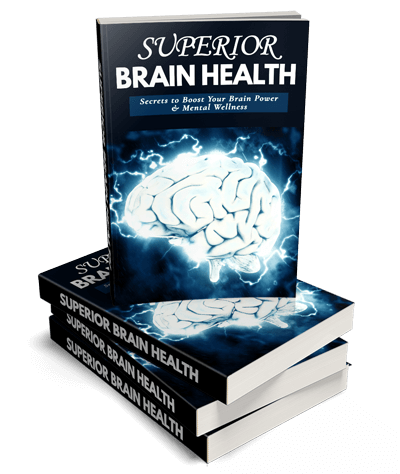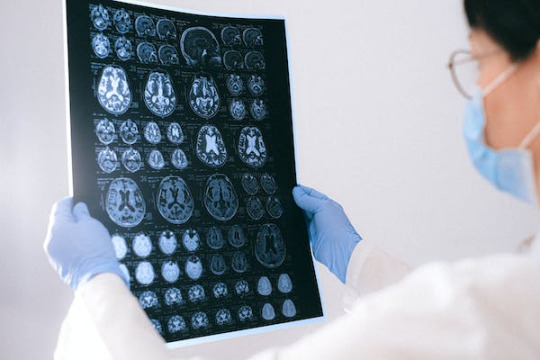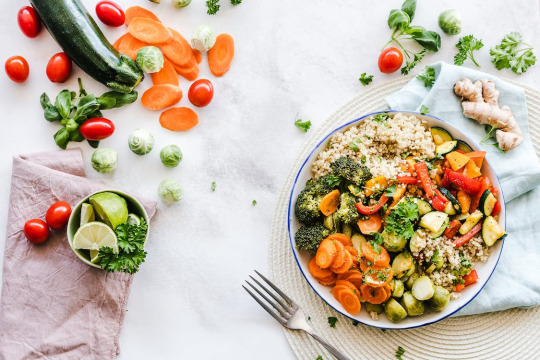#mentalfitness
Text

In today's fast-paced world, achieving a healthy work-life balance is more important than ever. In this article, we will explore some practical tips for maintaining a healthy work-life balance.
#wellness#wellnesslife#wellnesscoach#wellnessgoals#mentalhealth#mentalillness#covid#covid19#coronavirus#mentalfitness
2 notes
·
View notes
Text

We are aging!
My MIL is on her deathbed in my dining room. She is 82 and for the past 6 decades, she lived in survival mode in rural Montana: self-sufficient, isolated, unwilling to get help for her mental and physical struggles. She was skin and bones when she came to us in the final stages of Alzheimer’s and Parkinson’s which she’d hidden from us.
Aging doesn’t have to be like that. And you and me? We are aging!
Patrice Hazan, physical therapist and founder of GroupHab, joins us for this episode that will enlighten our listeners with ways to age gracefully. We can do a lot – biologically, sociologically, and psychologically – to keep our bodies feeling and functioning younger ways. Listen now to find out how!
#diastasisrecti#fit2b#homeworkoutvideos#pelvicfloorexercises#cardioworkouts#weightworkout#pilatesworkouts#yogaworkouts#mommyworkouts#abrehab#spoonie#familyfriendly#mentalfitness#diastasisworkouts#kettlebell#instagramfitness#dementiaawareness#caregivingtips
0 notes
Text
Protect Your Brain Health and Brain Power
Our brains are the command centers of our lives, responsible for everything from memory and learning to focus and creativity. Just like any other organ, the brain thrives with proper care. The good news? You can take control and actively improve your brain health and boost your cognitive function at any age. This guide will equip you with powerful strategies to sharpen your mind and safeguard your brainpower for years to come.
Fueling Your Brain for Peak Performance
What you put into your body directly impacts your brain function. Here's how to nourish your brain for optimal performance:
Embrace a Brain-Boosting Diet: Fill your plate with brain-friendly foods rich in omega-3 fatty acids, antioxidants, and vitamins. Fatty fish, leafy greens, berries, nuts, and whole grains are excellent choices. Limit processed foods, saturated fats, and added sugars, which can hinder cognitive function.
Stay Hydrated: Dehydration can lead to sluggish thinking and memory lapses. Aim to drink plenty of water throughout the day to keep your brain sharp and functioning optimally.
Don't Skip Breakfast: Starting your day with a nutritious breakfast kickstarts your metabolism and fuels your brain for peak performance throughout the morning.
Sharpen Your Mind Through Mental Fitness
Just like your body, your brain benefits from regular exercise. Here are activities that will challenge and strengthen your cognitive abilities:
Challenge Yourself with New Skills: Learning a new language, playing a musical instrument, or taking up a creative hobby like painting or writing stimulates the brain and promotes the formation of new neural pathways.
Embrace Brain Games: Crosswords, Sudoku, puzzles, and brain training apps can be a fun way to keep your mind sharp and improve memory, focus, and problem-solving skills.
Read Regularly: Reading exposes you to new ideas, expands your vocabulary, and enhances critical thinking skills. Immerse yourself in different genres to keep your brain engaged.
Prioritize a Healthy Lifestyle for Brainpower
Taking care of your overall health is crucial for optimal brain function. Here are key lifestyle habits to adopt:
Get Regular Exercise: Physical activity increases blood flow to the brain, which delivers essential oxygen and nutrients. Aim for at least 30 minutes of moderate-intensity exercise most days of the week.
Prioritize Quality Sleep: When you sleep, your brain consolidates memories, processes information, and removes toxins. Aim for 7-8 hours of quality sleep each night for optimal brain health.
Manage Stress: Chronic stress can negatively impact cognitive function and memory. Practice stress-reduction techniques like meditation, yoga, or deep breathing to keep stress levels in check.
Limit Alcohol and Smoking: Excessive alcohol consumption and smoking can significantly impair brain function and memory. Moderation is key, and quitting smoking is highly beneficial for brain health.
Building a Brain-Healthy Social Life
Strong social connections are essential for both physical and mental well-being. Here's how your social life can positively impact your brain:
Nurture Relationships: Social interaction stimulates the brain and helps combat feelings of isolation. Spend time with loved ones, join a club, or volunteer in your community.
Engage in Meaningful Conversations: In-depth conversations challenge your thinking and memory, keeping your brain actively engaged.
Embrace New Experiences: Traveling to new places, trying new activities, and learning new things keep your brain stimulated and foster cognitive growth.
Protecting Your Brain from Harm
Certain habits and conditions can negatively impact brain health. Here's how to safeguard your cognitive function:
Manage Chronic Conditions: Conditions like high blood pressure, diabetes, and high cholesterol can increase the risk of cognitive decline. Work with your doctor to manage these conditions effectively.
Protect Your Head: Head injuries can impact brain function. Wear a helmet during activities that carry a risk of head injury, such as cycling or contact sports.
Challenge Your Brain Regularly: Mental stimulation throughout your life helps maintain cognitive function as you age. Keep learning, stay curious, and challenge your brain to keep it sharp.
By incorporating these strategies into your daily life, you can significantly improve your brain health and boost your cognitive function. Remember, the brain is a powerful and adaptable organ. With the right care and stimulation, you can empower your brain to thrive for years to come.

1 note
·
View note
Text
This will be my third year joining the REV, and I'm so glad that I have come across this program during the time that I did. Dealing with mental health isn't easy peasy. You have to find the strength when you are at your lowest. Sometimes it takes one or more people to push you in that direction. Once you are there, you have to keep going.
I've spoken countless times about dealing with depression and being on that road was not easy at all. The struggle is real and you really know who is in your corner when all you feel is emptiness and sadness. My family of course was there for me, and I also had my fitness crew The Rumbistas there as well.
Speaking of fitness, BORP Adaptive Sports and Recreation has two components to getting your workout in. In-person and virtual. I have been taking virtual classes since 2022. I have seen a very positive outcome in taking these classes as to doing other workouts. There was no Enthusiasm behind each person's voice, that encouraged a member to keep on coming back. With other programs, I tried. Once the door opened up and I heard about BORP, there goes the excitement a member needs to hear, I got that from all my instructors here at BORP Adaptive Sports and Recreation
These programs can not keep running without your support, please donate. Your money goes to getting more adaptive equipment and it goes to helping these virtual programs going. People with disabilities need more movement and without having the proper tools, it would make working out extremely hard. Your donation matters.
#disabilityawareness #AdaptiveSports #nonprofitorganization #fypシ #physicalfitness #mentalfitness
0 notes
Text
Chess Classes in Singapore: Kiya Learning Chess classes in Singapore develop critical thinking, strategic planning, and decision-making skills through the game of chess. Participants learn chess tactics, positional understanding, and sportsmanship while enjoying intellectual challenges and competition.
#ChessClassesSG#SingaporeChess#StrategicThinking#ChessTrainingSG#MentalFitness#TacticalSkills#ChessMastery#BoardGameClasses#CriticalThinkingSG#MindSportSG#ChessSkillsDevelopment#ChessStrategy#BrainTrainingSG#ChessForAllAges#SingaporeMindGames#ChessTuition#IntellectualGrowthSG#ChessEnthusiasts#ChessCommunitySG#CheckmateSingapore
0 notes
Text
Build Your Own Mental Gym For Mental Fitness

Growing awareness in physical fitness often takes center stage when we think about our health, while mental fitness is often overlooked. Just as we train our bodies, our minds also require regular exercise and care. Welcome to your mental gym, a place where you can build resilience, improve focus, and boost cognitive abilities. So what should you do for your mental fitness, to build a strong and resilient mind?
Understanding Mental Fitness
Before we embark on our mental fitness journey, let's first understand what it truly means. Mental fitness encompasses various components, including emotional well-being, cognitive abilities, and psychological resilience. It involves nurturing a positive mindset, managing stress effectively, and adopting healthy coping mechanisms.
Setting Goals and Objectives
Just like any fitness journey, it's essential to identify areas for improvement and set realistic goals. Reflect on your current mental well-being and pinpoint areas that you would like to enhance. Whether it's improving focus, managing anxiety, or cultivating a growth mindset, setting clear objectives will provide you with a roadmap for your mental fitness journey.
Exercise for the Mind
Exercise is not only beneficial for the body but also for the mind. Engaging in mental exercises and practices can help strengthen neural connections, improve memory, and enhance cognitive abilities. Explore techniques such as mindfulness meditation, puzzles, brain training apps, and journaling to stimulate your mind and promote mental agility.
Nutrition for the Brain
Just as a balanced diet fuels our bodies, it also nourishes our brains. Certain foods and supplements have been shown to support brain health and cognitive function. Incorporate brain-boosting nutrients like omega-3 fatty acids, antioxidants, and B-vitamins into your diet. Explore nutrition apps and consult with professionals to ensure you're providing your brain with the right fuel for optimal performance.
Rest and Recovery
Rest and relaxation are essential for mental well-being. Prioritize quality sleep, as it allows the brain to recharge and consolidate memories. Incorporate relaxation techniques such as deep breathing exercises, yoga, or spending time in nature. Remember, downtime is not wasted time; it's an investment in your mental fitness.
Building a Routine
Consistency is key to any fitness regimen, including mental fitness. Create a personalized mental fitness routine that works for you. Dedicate specific times for mental exercises, incorporate brain-healthy foods into your meals, and prioritize rest periods.
Tracking Progress and Adjusting
To stay on track and measure your growth, monitor your progress regularly. Keep a journal to record your experiences, track improvements, and reflect on challenges. If necessary, make adjustments to your routine or objectives to ensure continuous growth and development.
Congratulations on taking the first step towards building your own mental gym. When you recognize the importance of mental fitness and putting these strategies to work in your life, you're investing in your overall well-being. Mental fitness is a journey, and each day presents an opportunity for growth. Set up a routine that works for you, be kind to yourself, and celebrate your achievements along the way. Get ready to unlock your full mental potential and experience the transformative power of a strong and resilient mind.
The information provided on this website/application is for general informational purposes only. It is not intended as medical advice and should not be relied upon as a substitute for consultations with qualified healthcare professionals.
Read the full article
0 notes
Text
House Republicans are demanding that President Biden take a cognitive test to prove his mental fitness for office.
1 note
·
View note
Text
Mental Health and Emotional Wellbeing-5 Powerful strategies for a positive mindset

Mental Health and Emotional Wellbeing-5 Powerful Strategies for a Positive Mindset
"Elevate Mental Health & Emotional Wellbeing with powerful strategies. Embrace positivity for a happier, healthier life starting now!"
Mental Health and Emotional Wellbeing - Introduction
Our whole mental and emotional wellbeing affects both of our physical and emotional health. They have an impact on everyday lives besides our relationships, jobs, and self-improvement.
Nonetheless, despite their importance, these subjects are frequently demonized and disregarded in our culture. Greater awareness of the importance of mental health and emotional wellbeing has manifested in more facilities, engagement, and awareness in recent years.
Image by rawpixel.com on Freepik" src="https://zameela.com/wp-content/uploads/2024/02/mental-health-care-sketch-diagram-2-1024x910.webp" alt="Mental Health and Emotional Wellbeing Image Credit: Image by rawpixel.com on Freepik" />Mental Health and Emotional Wellbeing Image Credit: Image by rawpixel.com on Freepik
Caring for Your Mind and Soul: Nurturing Mental Health and Emotional Wellbeing
In this blog, we’ll bandy the significance of internal health and emotional good and talk about how to produce a healthy mindset to support those conditions. In order to help with your address your internal health and emotional good for a better, healthy life, we will give advice and guidance on everything from following a many ways and awareness to tone- care and social support.
Step 1: Practicing Gratitude — Boosting Mental Health and Emotional Wellbeing
Thanksgiving is a positive feeling that has a favorable effect on our internal and emotional well- being. It implies promoting the positive aspects of everyday life and giving thanks for them.
According to exploration, learning appreciation can strengthen connections, reduce stress, and boost overall happiness. This post will address the benefits of thanksgiving for Mental Health and Emotional Wellbeing as well as give useful guidance for enforcing thanksgiving into everyday life.
Benefits of Gratitude for Mental Health and Emotional Wellbeing
Numerous salutary goods on Mental Health and Emotional Well- being have been associated with thanksgiving. It can profit us in the following ways.
Reduce Stress and Anxiety
Positive thinking can increase how well we manage stress and anxiety in our life. Cortisol is a stress hormone that has been proven to be lowered by thanksgiving. Engaging in positive thinking has been shown to enhance our ability to cope with stress and anxiety. The impact of gratitude on reducing cortisol, a stress hormone, is well-documented. Embracing thanksgiving practices can contribute to lowering cortisol levels, promoting a sense of calm, and fostering better stress management in our daily lives.
Improve relationships:
Our relationships and social connections can be strengthened by showing others gratitude. Also, it can make us feel more supported and less isolated. Expressing gratitude can significantly enhance our relationships and social bonds. When we show gratitude to others, it not only strengthens the connection but also creates a sense of mutual support. This shared appreciation fosters a supportive environment, reducing feelings of isolation and contributing to the overall improvement of our relationships.
Enhance satisfaction:
It has been discovered that thanksgiving increases feelings of happiness and life satisfaction. We can have a more positive view towards life if we concentrate on what we do have instead of everything we don’t.
Expressing gratitude and acknowledging the positive aspects of our lives fosters a profound sense of contentment. By actively practicing thanksgiving, individuals can cultivate a mindset focused on abundance rather than scarcity. This shift in perspective enhances overall satisfaction, nurturing a more optimistic outlook that contributes to heightened happiness and well-being.
Tips for Incorporating Gratitude into Daily Life
Thanksgiving practices don’t have to be difficult or time-consuming. The following are some easy ways to practice thankfulness every day: Integrate gratitude effortlessly into your daily routine with simple practices. Begin or end each day by listing three things you're thankful for.
Send a thoughtful message expressing appreciation to someone. Keep a gratitude journal, noting positive moments. These uncomplicated yet impactful actions infuse gratitude seamlessly into your life, promoting a continual sense of appreciation.
Maintain a notebook of kindness:
Every day, list three things for which you are grateful. This can assist you in maintaining your attention on the good things in your life and developing a grateful mindset. Create a dedicated gratitude notebook to document three daily sources of appreciation.
This intentional act of acknowledgment not only reinforces positive aspects but also fosters a grateful mindset. Consistently noting moments of kindness cultivates mindfulness, directing focus towards the uplifting elements of life and contributing to sustained feelings of gratitude and contentment.
Express gratitude to others: Become more mindful:
Spend a few minutes each day concentrating on the here and now and thinking about your blessings. Take a moment daily to express gratitude, acknowledging the positive aspects of your life and the contributions of others.
Reflect on your blessings, fostering mindfulness and appreciation for the present. By dedicating a few minutes each day to this practice, you cultivate a mindset of gratitude, promoting overall well-being and positivity.
Use visual cues:
Post reminders of your blessings around your house and workplace. This can assist you in continuing to focus on the good things in your life. Surround your living and working spaces with visual cues of gratitude.
Place uplifting notes or images reminding you of your blessings strategically in your home and office. These visual prompts serve as constant reminders, encouraging a positive mindset and reinforcing your awareness of the many reasons to be thankful each day.
Summary
By developing thanksgiving, you can fluently but significantly ameliorate your internal and emotional good. By fastening on the positive aspects of everyday life and thanking for those, we can reduce stress, ameliorate our particular connections, and enjoy true satisfaction. apply the habit of thanksgiving into your regular living to see what a positive impact it may have on your good.

Mental Health and Emotional Wellbeing Image Credit: Photo by Andrew Neel: https://www.pexels.com/photo/photo-of-man-leaning-on-wooden-table-3132388/
Step 2: Mindfulness and Meditation — Nurturing Mental Health and Emotional Wellbeing
We may improve our mental health and emotional well-being and wellbeing by participating in mindfulness and meditation, which are powerful techniques. require paying proper attention to the present moment, increasing awareness, and reducing tension and anxiety.
In this post, we will discuss the benefits of mindfulness and meditation for mental health and emotional wellbeing and give advice for starting these practices.
The benefits of mindfulness and meditation for mental health and emotional wellness
A few benefits of mindfulness and meditation for mental health and emotional well-being. Between these advantages are:
Reducing stress and anxiety:
By increasing our awareness of our emotions and thoughts and reducing their negative impacts on our health, mindfulness and meditation can assist us in handling stress and anxiety. Mindfulness and meditation empower us to manage stress and anxiety by heightening self-awareness.
Through these practices, we learn to observe and understand our emotions and thoughts without judgment, preventing their detrimental effects on our well-being. Mindfulness cultivates a present-focused mindset, while meditation encourages relaxation and mental clarity.
By incorporating these techniques into our routine, we develop resilience and coping mechanisms, fostering a healthier relationship with stressors and promoting overall mental and emotional balance.
Enhancing emotional regulation:
By improving our capacity to openly monitor and understand our emotions, these strategies can help us in regulating them. To handle our emotions better, it's important to keep an eye on them and understand what we're feeling. This helps in regulating emotions effectively.
Simple strategies like naming our feelings and recognizing their triggers allow us to gain control. Taking deep breaths or stepping back can also create a space to respond thoughtfully instead of reacting impulsively. Practice and patience are key; as we enhance our ability to monitor and understand our emotions, we improve our emotional regulation, leading to a more balanced and composed state of mind.
Improving relationships
By boosting our compassion and empathy for others, mindfulness and meditation can improve our social interactions. Mindfulness and meditation enhance our relationships by making us more compassionate and empathetic towards others.
These practices encourage us to be fully present in conversations, understanding the feelings and needs of those around us. As we cultivate a non-judgmental awareness, we become more patient and accepting. This, in turn, fosters positive connections and deepens our understanding of others, leading to healthier and more fulfilling relationships. Incorporating these practices into our daily lives helps create a more harmonious and supportive social environment.
Increasing Resilience
By developing a more cheerful mindset and increasing our resilience to stress and struggle, mindfulness and meditation can help us are becoming more flexible in the face of challenges. Engaging in mindfulness and meditation cultivates a positive mindset, making us more resilient in handling stress and difficulties. These practices teach us to approach challenges with flexibility and adaptability.
By staying present and focused, we learn to navigate tough situations with a calmer demeanor. Regular mindfulness exercises build mental strength, enabling us to bounce back from setbacks. Embracing these habits helps foster a resilient attitude, empowering us to face life's ups and downs with greater ease and a more optimistic outlook.
Tips for Getting Started with Mindfulness and Meditation
By developing a more cheerful mindset and increasing our resilience to stress and struggle, mindfulness and meditation can help us are becoming more flexible in the face of challenges.
By promoting a happier mindset and increasing our ability to cope with stress and anxiety, mindfulness and meditation can help us become more flexible in the face of challenges.
Starting a mindfulness or meditation routine can be difficult, but there are few simple steps you can do to get started:
Start Small:
Begin out with short meditation sessions of 5 or 10 minutes, and as you get more comfortable to the practice, gradually expand them. Start your meditation journey with short sessions, just 5 or 10 minutes at first. As you become more at ease with the practice, slowly extend the duration.
This gradual approach helps in building a sustainable habit without feeling overwhelmed. Begin by finding a quiet space, sit comfortably, and focus on your breath. With time, you'll likely discover an increased ability to concentrate and a greater sense of calm. Small, consistent steps make the practice more accessible and eventually lead to longer, more rewarding meditation sessions.
Find a quiet and comfortable space:
Choose a quiet and comfortable space where you can focus without distractions. Find a quiet and cozy spot for your activities, free from disturbances. Opt for a space where you can fully concentrate without interruptions. Ensure it's comfortable, allowing you to sit or lie down easily.
A peaceful environment enhances your ability to focus and engage in mindfulness or meditation practices. Whether it's a corner of a room or a cushioned chair, creating a designated area helps signal to your mind that it's time to unwind and be present in the moment, promoting a more effective and enjoyable experience.
Use guided meditations:
Guided meditations can be helpful for beginners, as they provide guidance and structure to the practice. For beginners, guided meditations offer valuable assistance by providing structured guidance. These sessions, led by a narrator or through apps, give step-by-step instructions, making the meditation process more accessible.
Following prompts on breathing, visualization, or body awareness, beginners can better focus their minds. The guidance helps in staying present, minimizing distractions, and gradually building a meditation routine. As confidence grows, individuals can transition to unguided sessions, but initially, the support of guided meditations acts as a helpful tool for establishing a foundation in mindfulness practices.
Practice regularly:
When it comes to mindfulness and meditation, regularity is extremely important. Attempt to practice daily basis, even if it’s just for just few minutes. Consistency is key in mindfulness and meditation. Strive to practice every day, even if it's just for a few minutes. Establishing a routine builds the habit and maximizes the benefits. It's better to have short, regular sessions than infrequent longer ones.
Set aside a specific time each day, making it a non-negotiable part of your routine. Whether morning or evening, find a time that suits you. Regular practice strengthens the mind's ability to stay focused and calm, enhancing the overall impact of mindfulness and meditation on your well-being.
Be patient and compassionate with yourself:
Mindfulness and meditation can take time to master. Be patient and compassionate with yourself as you develop your practice. Remember, mastering mindfulness and meditation is a gradual process. Be patient and kind to yourself during this journey.
It's normal for the mind to wander initially; gently guide it back without judgment. Understand that progress takes time, and each session contributes to your growth. Avoid self-criticism and embrace self-compassion. Recognize that everyone has unique experiences with these practices.
Celebrate small victories and acknowledge challenges without frustration. By fostering patience and compassion, you create a supportive environment for your mindfulness journey, allowing for a more fulfilling and sustainable practice over time.
Summary
Mindfulness and meditation are effective practices which can assist us nurture our Mental Health and Emotional Wellbeing. By growing our awareness, decreasing strain and anxiety, and improving our relationships and resilience, those practices can guide us in residing a happier, more healthy life. Try incorporating mindfulness and meditation into each day ordinary and notice the fine effect they are able to have to your wellbeing.
Step 3: Self-Care and Relaxation — Prioritizing Mental Health and Emotional Wellbeing

Mental Health and Emotional Wellbeing Image Credit: Microsoft AI
Self-care and relaxation are essential components of maintaining good mental health and mindfulness. Taking care of ourselves not only benefits our physical health, but also our emotional and mental wellbeing.
In this article, we will explore the importance of self-care and relaxation for mental health and mindfulness and provide tips for incorporating these practices into daily life.
Importance of Self-Care and Relaxation for Mental Health and Mindfulness
Prioritizing self-care and relaxation are vital for mental health and mindfulness. These practices contribute to overall well-being by reducing stress and promoting emotional balance.
Read the full article
#CopingStrategies#EmotionalBalance#emotionalhealth#emotionalintelligence#emotionalstability#HolisticHealth#MentalFitness#mentalhealthawareness#MentalResilience#mentalstrength#MentalWellness#mindfulness#mindfulnesstechniques#mindsetdevelopment#mindsetshift#positivemindset#positivepsychology#positivityhabits#PsychologicalWell-being#resilience#self-awareness#self-care#self-love#stressmanagement#well-beingpractices.
0 notes
Text

Raise your hand if you spend more than 17 minutes a day on your phone…
And even if you’re not using your phone, it’s a known fact that your cell phone puts out a steady stream of EMF radiation…
Whether you’re actively using it or not.
(Raise your hand if your phone is in your back pocket right now…)
#mentalawareness#fitness#health#emf#mobileradiation#awareness#mentalfitness#socialfitness#social#healthissues#safety#safetytips#self realization#compassion#acceptance#social awareness#article#mental health#positive mental attitude#therapy#mental illness#healthandsafety#health and wellness#healthcare#health & fitness#wellness#health tips
0 notes
Text

Stoicism is the philosophical approach to living life. It showcases how to live life on terms that aren’t easy but somehow effective to maintain the socioeconomic balance. Unravel the mystical art of Stoicism in this article. Click the link!
https://neodrafts.com/unraveling-stoicism-how-to-control-your-emotions
#wellness#wellnesslife#wellnesscoach#wellnessgoals#mentalhealth#mentalillness#covid#covid19#coronavirus#mentalfitness
0 notes
Text

Discover the art of Surya Mudra! 🌅 Simple yet powerful, this hand gesture can enhance your energy levels and bring warmth to your day.
#SuryaMudra#Wellness#EnergyBoost#MindBodyBalance#PositiveVibes#HealthAndWellness#SelfCare#MudraMagic#DailyPractice#Vitality#HolisticHealth#Mindfulness#WellbeingJourney#YogaLife#InnerStrength#PositiveEnergy#MentalFitness#FeelGoodVibes#HolisticLiving#SpiritualWellness
1 note
·
View note
Text
🧠🚂 All Aboard the Mind Train: National Train Your Brain Day, October 13! 🚆🌟
Today, we celebrate the power of our incredible brains and the importance of continuous learning and mental fitness. 🧠📚
On National Train Your Brain Day, take some time to:
📖 Dive into a good book
🧩 Challenge your mind with puzzles and games
🔍 Learn something new
💪 Embrace brain-boosting activities
Our brains are like muscles - the more you train them, the stronger and more agile they become. 🏋️♀️💡
Let's prioritize our mental well-being and encourage others to join us on this journey of lifelong learning and growth. 🌱📓

#TrainYourBrainDay#MentalFitness#LifelongLearning#MindMatters#ChallengeYourself#BrainHealth#MindfulLiving#KnowledgeIsPower#KeepLearning#followme#blossomlifestylehub#special days#empowerment#BrainTraining#CognitiveSkills#MindExercise#BrainWorkout#MentalWellness#ExpandYourMind#ContinuousLearning#BrainTrainingGames#FeedYourMind#StayCurious#CultivateKnowledge
0 notes
Text
Make a New Friend Through Ballroom Dancing
I moved to New York City when I was 20 years old. It was great being in the big city where so much was happening. Even so, I had a problem…I didn’t know anybody. That was when I decided to find a hobby where I could make a new friend or two. In my opinion, I hit the jackpot when I found ballroom dancing. If you’re looking for some company, ballroom dancing just might be right for you, too. Try…

View On WordPress
#ballroomdancehobby#ballroomdancestyles#dancesafari#findapartner#getsomecompany#learntodance#makeafriend#mentalfitness#physicalfitness#spiceupyoursociallife
0 notes
Text
0 notes
Text
”Unlocking the Secrets of Brain Health: Your Guide to a Brighter Future” 🧠🌟

Your abilities, health, and interests should be considered when making brain-healthy choices. If you have questions, speak to your doctor, healthcare provider, or contact your local Society for recommendations.
Why Brain Health Matters 🧠 Your brain health is essential for your overall well-being. While some factors like age and genetics can’t be controlled, you can reduce the impact of other controllable risk factors. 🔄💪
By following these tips, you’re not only lowering your risk of dementia, but you’re also:
Caring for your long-term brain health. 🧠❤️
Reducing your risk of other cognitive and chronic diseases. 🚫🤒
Safeguarding your overall health. 🛡️🌟
Stay Physically Active 🏃♀️ Regular exercise reduces the risk of heart disease, stroke, and diabetes, all of which are linked to dementia. 🏃♂️🏋️♀️
Physical activity also boosts blood flow to the brain, providing essential nutrients and oxygen. Exercise also helps manage stress and improves your mood. 😅🧘♂️
Here are five tips for staying active:
Start small and set achievable goals. 🎯🏅
Find activities you enjoy. 😄🏄♀️
Aim for at least 150 minutes of moderate-to-vigorous activity each week. ⏰🚴♀️
Consider aerobic exercises like walking or swimming. 🚶♂️🏊♀️
Exercise with a friend for added motivation. 👫🤝
Stay Socially Active 👥 Interacting with others regularly can reduce the risk of dementia and lower stress levels. It also keeps your mood up and strengthens your relationships. 🗣️❤️
Here are five tips for staying socially active:
Engage in daily conversations with people you meet. 👋🗨️
Practice acts of kindness, no matter how small. 🤗🎁
Volunteer for social activities. 🙋♂️🤝
Combine social interaction with activities you enjoy. 🎉🎨
Maintain old friendships and make new ones. 🤝👵👴
Eat a Healthy Diet 🥗 A nutritious diet not only reduces the risk of heart disease and diabetes but also supports brain function. 🥦🍓

Here are five tips for eating healthily:
Limit processed foods, meat, and sweets. 🍔🍰
Include a variety of colorful fruits and vegetables. 🌈🥕
Opt for foods like avocados, broccoli, and nuts. 🥑🥜
Use herbs and spices for flavor. 🌿🧂
Be mindful of portion sizes and stay hydrated. 🥤💧
Make Safe Choices 🛡️ Protect your brain health by making conscious choices in daily life. Factors like head injuries and excessive alcohol consumption can increase dementia risk. ⚠️🍺
Here are five tips for making safe choices:
Avoid habits that harm your body. 🚭❌
Wear helmets during intense physical activities. 🪖🚴♂️
Assess your environment for potential risks. 🌆🚦
Monitor your health numbers like blood pressure. 🩺📊
Regularly consult your doctor for health concerns. 👩⚕️📆
Manage Stress 😌 Persistent stress can negatively affect your brain and overall health. Managing stress helps reduce dementia risk. 🤯🧘♀️

Here are five tips for managing stress:
Recognize stress symptoms. 😓❗
Take personal time for relaxation. 🌅🍃
Set realistic expectations. 📆🤝
Get enough sleep. 😴🌙
Seek support from friends or professionals. 🤗👥
Challenge Your Brain 🧩 Continual learning and cognitive challenges can reduce dementia risk. 📚🧠
Here are five tips for challenging your brain:
Pursue lifelong learning and hobbies. 📖🎨
Play brain-challenging games. 🎲🧩
Maintain routines and use reminders. ⏰🗒️
Engage in cultural activities. 🎭🎵
Cross-train your brain by trying new activities. 🔄🏋️♀️
Remember that lifestyle choices significantly impact your risk of dementia, so make choices that prioritize your brain health. 💡🧠
Transform Your Brain, Transform Your Life! Join Our Program for a Brighter Mind Today!! 🌟🧠
#BrainHealth#MentalWellness#CognitiveHealth#Neuroscience#MindBody#HealthyMind#BrainPower#MemoryBoost#BrainFitness#Neuroplasticity#MentalClarity#BrainTraining#MentalStrength#BrainTips#MindHealth#BrainFunction#BrainFood#MentalResilience#MentalFitness#BrainHacks
0 notes
Text
Age, Health, and the American Political Landscape: An In-Depth Analysis Introduction

In a shocking incident, Mitch McConnell, the Senate Majority Leader, appears to have suffered a neurological episode during a public event. The septuagenarian remained frozen for almost 30 seconds and had to be escorted away from the podium. McConnell is one of many elderly individuals who occupy high positions in the US government. This raises an essential question about the intersection of age, health, and leadership in American politics.
The Perils of Aging Leadership
Elderly politicians like McConnell, Nancy Pelosi, Donald Trump, and Joe Biden dominate the American political sphere. It's not to say these individuals aren't competent or effective, but one cannot ignore the undeniable fact that aging has physiological and psychological implications.
As individuals age, they face increased risk of health issues like dementia, senility, and various other chronic illnesses. These conditions can impair cognitive function, decision-making capabilities, and overall performance, especially under the stress of high-profile leadership roles. Despite this, there is no provision for term limits or cognitive acuity tests for public servants beyond a certain age, a striking oversight considering the potential implications for policy-making and governance.
The Politics of Ageism
Criticizing the prevalence of elderly individuals in positions of power can be misconstrued as ageism. But it's not a matter of discrimination or bias; it's a matter of pragmatism and rationality. Leaders should be in a position, both physically and mentally, to withstand the pressures of office, make sound decisions, and effectively lead their constituents. It's not to say that younger individuals are inherently better leaders, but they are less likely to suffer from age-related health issues that could compromise their effectiveness.
The Consequences of Outdated Perspectives
Many of these elderly leaders cling to antiquated ideas and ideologies that no longer resonate with a rapidly evolving society. The world we live in is not the same as it was decades ago when these individuals began their political careers. Society evolves, and so should its leaders. This is not a call to disregard the wisdom and experience that comes with age, but rather an appeal to ensure our leaders are in touch with the realities and demands of the present day.
The Need for Change
The incident involving McConnell underscores the need for reform. It's high time we implemented term limits and cognitive assessments for politicians, especially those in high office. This is not only to ensure their well-being but also to safeguard the interests of the American public. We should elect leaders who are physically and mentally fit to bear the burdens of office and represent the diverse and dynamic population they serve.
It's an uncomfortable conversation, but it's a necessary one. The issue isn't about age—it's about the ability to lead effectively, make sound decisions, and navigate the complexities of a rapidly changing world. It's about ensuring that our leaders are equipped to confront the challenges of the 21st century with vitality, intellectual acuity, and an informed understanding of contemporary realities. It's about safeguarding the future of the American political landscape.
#AgeAndLeadership#HealthInPolitics#TermLimitsNow#AcuityTestInPolitics#AmericanPoliticalReform#NoToAntiquatedIdeologies#FutureOfAmericanPolitics#LeadershipFitness#ElderlyInPolitcs#MitchMcConnell#Biden#Trump#Pelosi#Boomers#BabyBoomers#OkayBoomer#Stroke#MentalFitness#MedicalFitness#AI#GPT4#CustomInstructions#CodeInterpreter#the critical skeptic
0 notes